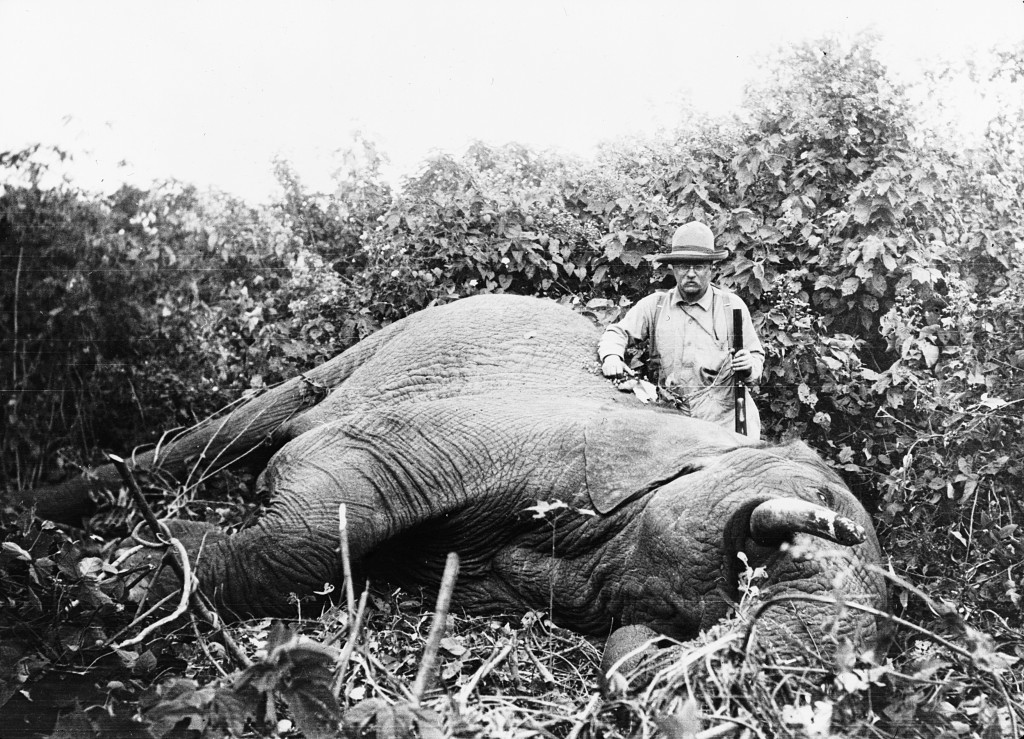
A century ago when President Teddy Roosevelt hunted animals—killing rhinos, elephants, and other animals—the country celebrated him. Today, most Americans condemn such behavior. In fact, only 6% of Americans hunt and most of those people are over 45. The vast majority of people, nearly eight out of 10, say they have no interest in hunting and will never do it. Hunting is dying out and that is great and welcome news.
Unfortunately for some animals, that demise has not come soon enough. While the world was condemning the poacher Walter Palmer for killing Cecil in Zimbabwe, five elephants were slain in Kenya.
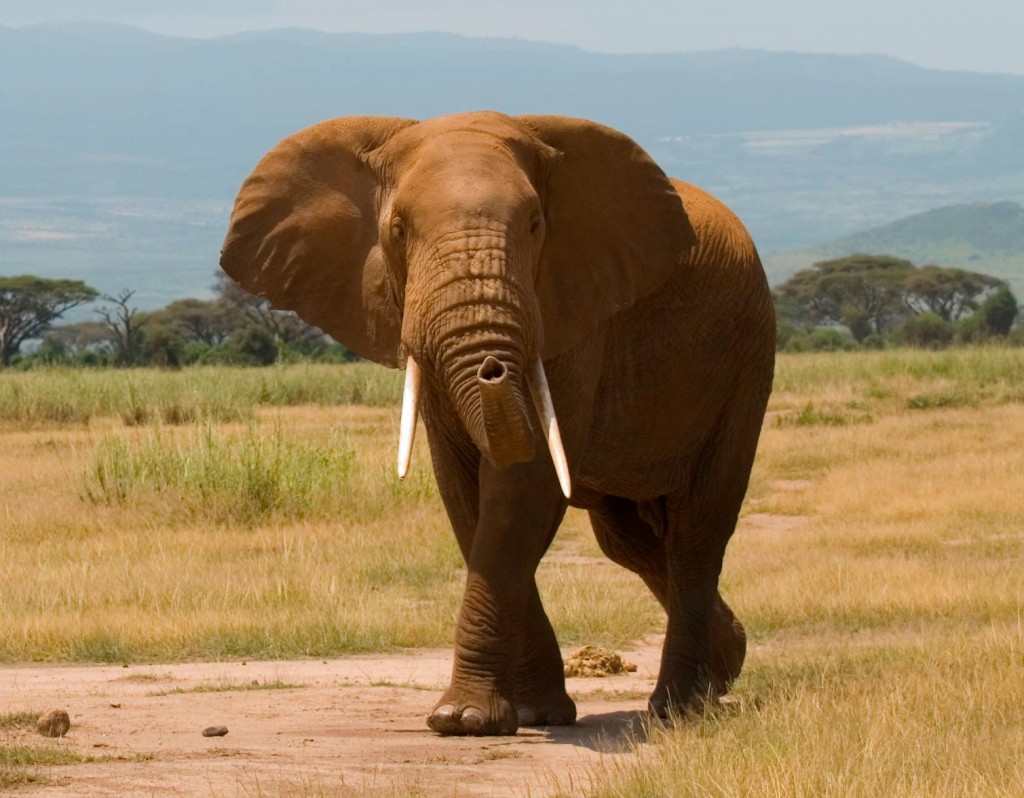
If asked, no doubt many people would say that one of the things that make the deaths of these animals so tragic is that they are “protected” species, or species on the edge of extinction. Indeed, the way we have been schooled by the environmental movement to talk about the fate of wild animals often relates to the species as a whole, with little talk of the individuals that make up those species or their inherent rights to live and be free of human induced suffering.
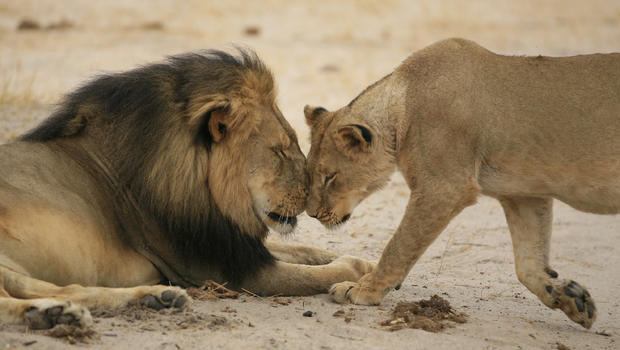
While the outrage over Cecil’s killing is the result of people being moved to anguish by the knowledge of the suffering he was forced as an individual to endure, our laws, and the modern environmental movement’s advocacy, have yet to catch up with public sentiment in this regard. Instead, the environmental movement is often preoccupied with the fate of species as a whole, often at the great expense of individuals who make up such species and as a result, the movement’s very mission.
Several weeks ago, I had a conversation with a self-professed “environmentalist” which reveals why this approach to engaging with the natural world is so morally problematic. During a walk through the hills, I stopped to scan a tree for a squirrel I was concerned might be suffering from an injury. When asked what I was doing and I pointed to the squirrel in the tree to explain, he responded that I shouldn’t waste my time because “there were a lot of them” and that, at any rate, he was “non-native” (a red, rather than a gray, squirrel) and therefore “didn’t matter.” Didn’t matter?
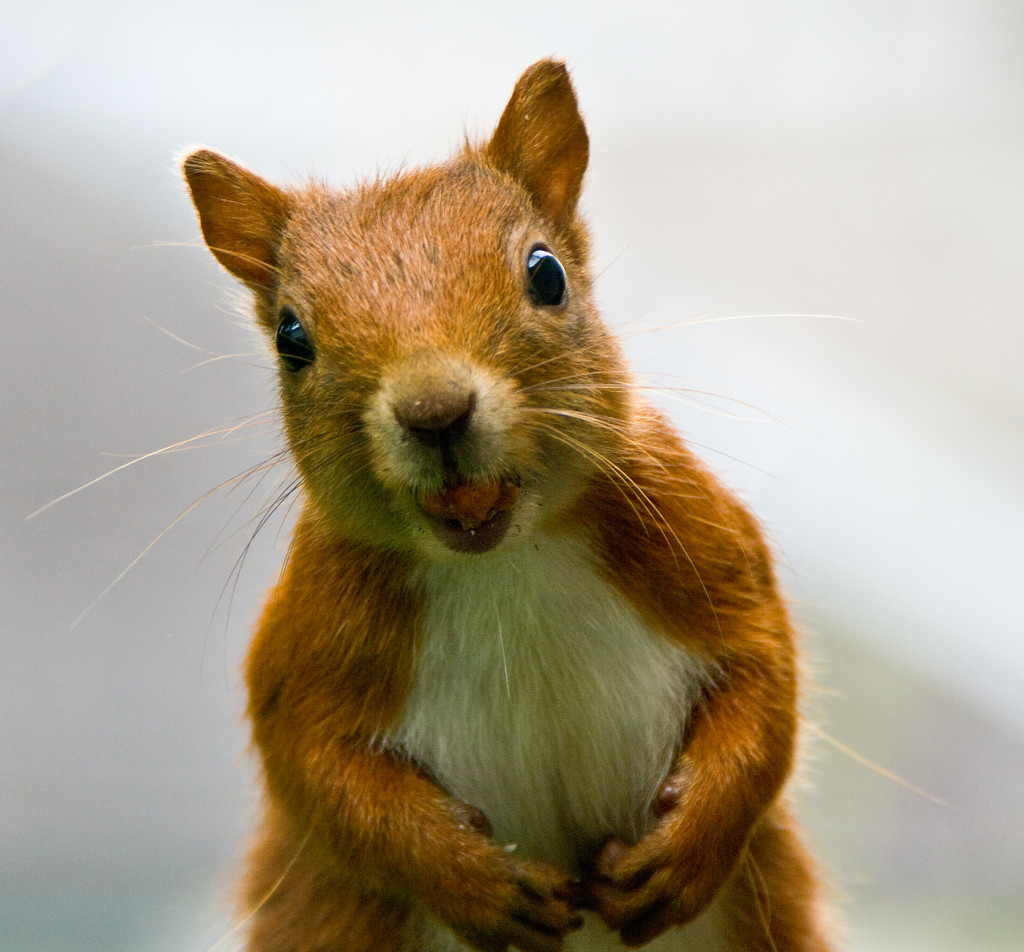
I was pretty sure the little squirrel was dragging one of his back legs, a disability that made it difficult for him to move about and which was most likely causing him pain. That any animal, regardless of where he/she first evolved or whether he/she belongs to a plentiful or rare species, should be suffering in such a manner was the only thing that should matter to a person claiming to be speak on behalf of the natural world and yet, to this man—who told me he studied ecology—it didn’t. Why? Because he had been taught that the squirrel was not an individual deserving of individual regard and compassion, but merely the member of a species that was plentiful and the “wrong” color.
Tragically, such views, based on the same sort of discrimination the West has come to regard as immoral in our treatment of our fellow human beings, is endemic among modern environmentalists, revealing the deep moral chasm that now lies at the heart of that often confused and corrupted movement.
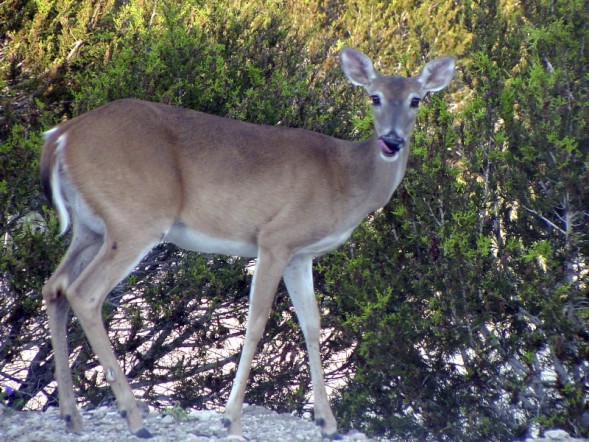
Lacking a moral center of gravity from which its tenets and advocacy are derived, the environmental movement has yet to evolve into what it should and no doubt someday will become: a rights-based philosophy, one that seeks protection for each of the earth’s non-human inhabitants not only because they have an inalienable right to such, but because a truly harmonious relationship with them and with the environment of which they are a part is simply not possible so long as we continue to kill them or turn a blind eye to their suffering as a result of something as ultimately irrelevant as their color or how many of them exist.
A true environmentally-friendly society would no longer longer allow wild animals to be hunted. It would grant protection to the habitats wild animals need in order to thrive. Above all, it would be guided by the principle that respect for sentient life is paramount, irrespective of the species and no matter how many or how few there are in the world.
————-
Have a comment? Join the discussion by clicking here.